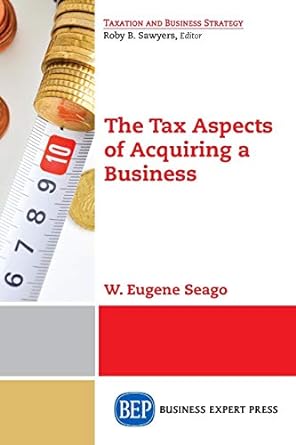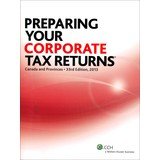Go back


The Tax Aspects Of Acquiring A Business(1st Edition)
Authors:
W. Eugene Seago

Cover Type:Hardcover
Condition:Used
In Stock
Include with your book
Free shipping: April 04, 2024Popular items with books
Access to 3 Million+ solutions
Free ✝
Ask 10 Questions from expert
200,000+ Expert answers
✝ 7 days-trial
Total Price:
$0
List Price: $15.98
Savings: $15.98(100%)
Book details
ISBN: 1631571249, 978-1631571244
Book publisher: Business Expert Press
Get your hands on the best-selling book The Tax Aspects Of Acquiring A Business 1st Edition for free. Feed your curiosity and let your imagination soar with the best stories coming out to you without hefty price tags. Browse SolutionInn to discover a treasure trove of fiction and non-fiction books where every page leads the reader to an undiscovered world. Start your literary adventure right away and also enjoy free shipping of these complimentary books to your door.
The Tax Aspects Of Acquiring A Business 1st Edition Summary: Tax considerations are seldom the determining factor in deciding whether to purchase a business. However, taxes often affect the price and form (e.g., purchase of stock or purchase of assets) the acquisition takes. This is true because the rationally determined price will be based on the expected present value of after-tax future cash flows. The tax component of the equation will depend on the form the acquisition takes. From the seller's perspective, tax considerations are extremely important. The tax implications of the purchase and sale of a business depend largely upon who is the buyer and who is the seller and what is being bought and sold. The business being purchased may be an unincorporated proprietorship, a single owner limited liability company (LLC), a partnership (or an LLC with more than one member), a C corporation, or an S corporation. The form of the sale (asset or stock) affects the character of the seller's gain (ordinary or capital) and the buyer's basis of the assets. Basis becomes the buyer's future tax deductions. Just as the price the buyer is willing to pay is based on projected present value of the after-tax proceeds, the price that is acceptable to the seller will depend upon his or her expected after-tax proceeds. Both parties must be aware of the other party's tax consequences to achieve a rational agreement.
Customers also bought these books
Frequently Bought Together
Top Reviews for Books
JoAnn Rivera
( 5 )
"Delivery was considerably fast, and the book I received was in a good condition."










